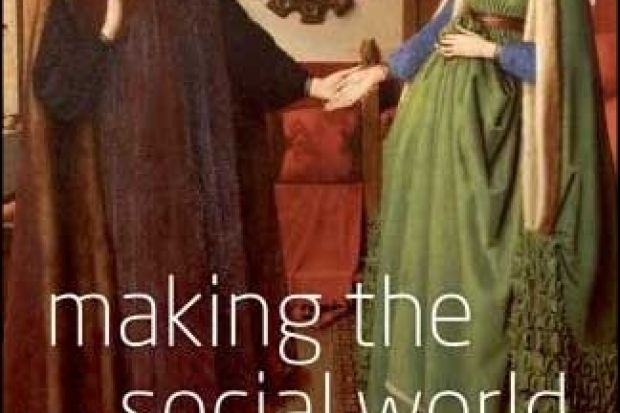Nothing exists, said Democritus about 2,400 years ago, except atoms and the void; the rest is all delusory convention. Most philosophers today more or less endorse this claim. Their parsimonious accounts of reality begrudge the inclusion of anything beyond physical particles in fields of force. Even macro objects at the biological level are suspect, while consciousness, morality, social customs and so on are seen as embarrassing illusions that will ultimately prove amenable to scientific explanation.
John Searle partly applauds this naturalising project. "The biggest cheat" is what he calls Descartes-type beliefs in a mental as well as a material world, and he also pours scorn on postmodern views that our minds construct reality - famously, he forced Jacques Derrida to water down his claim that "there is nothing outside the text". Yet Searle's pugnacious defence of realism also opposes him to the modern-day Democrituses. His renowned "Chinese room" argument shook up philosophers who equate minds with computers. He insists on the reality of consciousness and on the "huge, invisible ontology" of human culture.
"How do we get from electrons to elections and from protons to presidents?" This, says Searle, is the main, and neglected, question for philosophy today, and Making the Social World extends and revises the earlier answers he gave to it in his 1995 book The Construction of Social Reality. It is disingenuous, he argues, to deny that money, marriage, governments and cocktail parties exist as objective facts - there are real-life consequences for those who take other people's money, or go to a cocktail party uninvited.
But whereas some objective facts are just "brute facts" (the chemical composition of a $20 bill, for instance), others are "institutional facts" (that you can get some of the things you want in exchange for the bill). And institutional facts exist only because of our subjective attitudes, Searle says: "With the important exception of language itself, all of institutional reality, and therefore, in a sense, all of human civilization, is created by speech acts." Alongside speech acts that aim to match an independently existing reality ("snow is white", for instance), there are speech acts that aim to change reality - Status Function Declarations, as he calls them, by which "X counts as Y in context C". A line of stones can become a boundary. Barack Obama has become president of the US.
This creative subjectivity, however, is collective more than individual. It's not just a matter of my opinion that a piece of paper is a $20 bill, but a matter of shared and constant "recognition" (Searle's new term allows for reluctant acceptance). What are initially one-off Status Function Declarations congeal into "permanent speech acts", forming an implicit network of constitutive rules. These sometimes require the exertion of power (police, law, public disapproval) to be held in place, but most of the time are just taken for granted. What started as arbitrary conventions have become embedded, entitling the participants to specific rights and duties, and giving them "desire-independent reasons for action"; hence the compulsiveness of moral rules.
Searle wishes to be, as Gottlob Frege was with the philosophy of language, the initiator of a new branch of philosophy - "the philosophy of society". Quite against the current of his time, he has evolved from being a philosopher of language into the builder of a grand unified philosophical system that embraces everything from quarks to football to free will. His great strength is the way he tries to capture precisely what is sound and appealing in the dualist, naturalist and constructionist positions he opposes, but is he trying to square the circle?
His account of reality, allegedly "continuous", could be said to contain more types of entity than Descartes' - social as well as physical and mental. Searle can wave away such criticisms, saying that institutional facts supervene on brute facts. Yet equally, it seems, they depend for their existence on the mental, which creates and maintains them. Searle insists that his emergentist theory of mind can satisfactorily translate consciousness, intentionality and the mental into the terms of "squishy biology"; but doesn't he in fact rely on the non-physical, almost supernatural, powers that these troublesome entities seem (even in his "biological naturalism") so obdurately to possess?
Making the Social World: The Structure of Human Civilization
By John R. Searle
Oxford University Press
224pp, £14.99
ISBN 9780199576913
Published 14 January 2010
Register to continue
Why register?
- Registration is free and only takes a moment
- Once registered, you can read 3 articles a month
- Sign up for our newsletter
Subscribe
Or subscribe for unlimited access to:
- Unlimited access to news, views, insights & reviews
- Digital editions
- Digital access to THE’s university and college rankings analysis
Already registered or a current subscriber? Login
